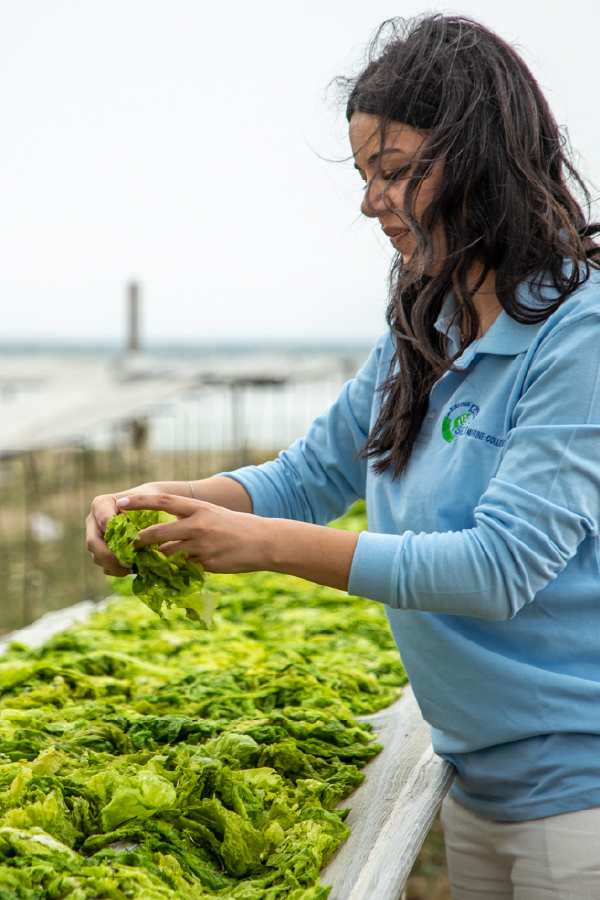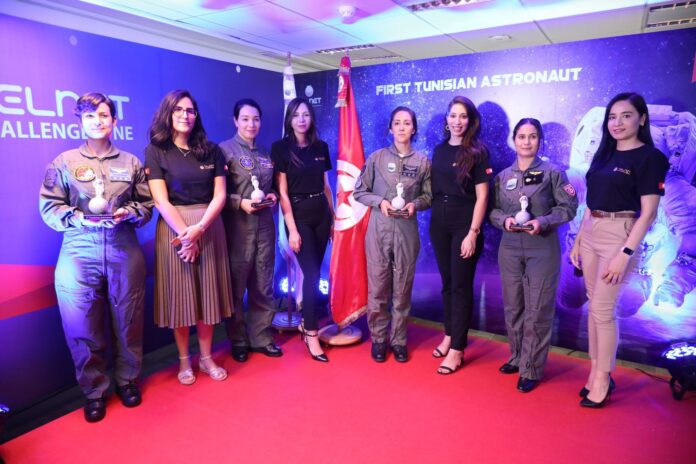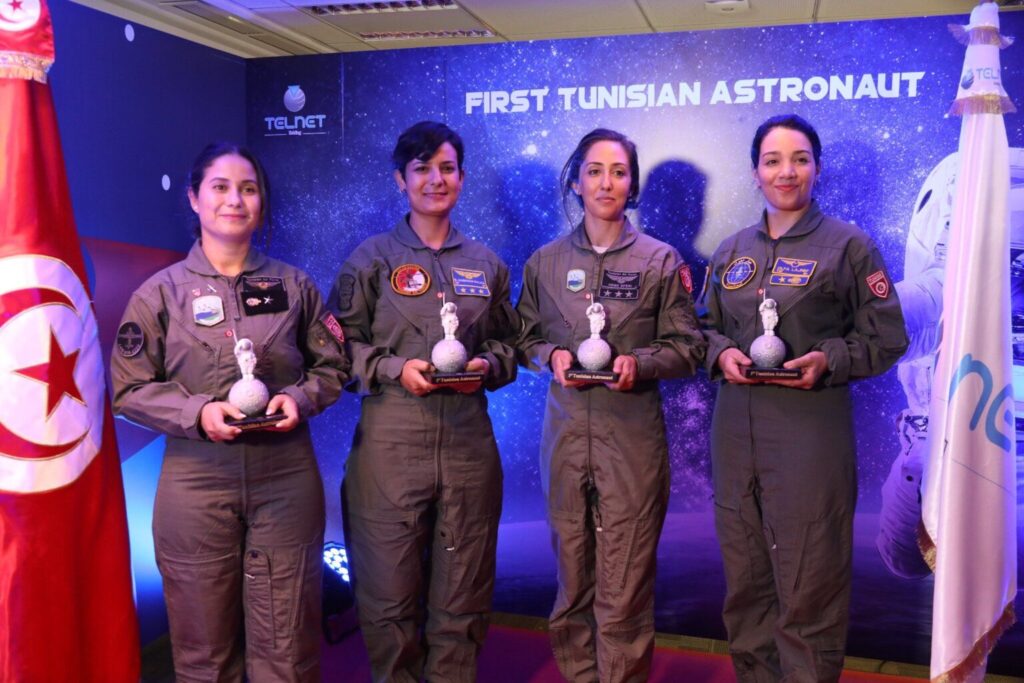“I believe in the power of women. The seaweed farm is run by women, and women represent 80 to 90 percent of all staff in administration, the labs and research.”
For most people, the word ‘engineer’ doesn’t immediately bring up images of food, and even fewer will think of seaweed. And yet, that’s exactly the niche where Nadia Selmi is pioneering new uses for an oft-overlooked marine resource.
Today, she is the commercial director of SELT Marine, a Tunisian seaweed company that employs more than 100 women in producing nutritious seaweed powder that can be made into vegetable gelatin for dairy, sweets and vegan products
“I believe in the power of women,” says Nadia. “The seaweed farm is run by women, and women represent 80 to 90 percent of all staff in our administration, the labs and research.”
Many of the women working on the seaweed farm come from vulnerable rural communities and have found a new kind of job in the growing sector.
And the potential that the sector holds for food security and food system transformation is significant. Using just 0.03 percent of our oceans’ surface, seaweed could add up to 10 percent to the world’s food supply. Importantly, seaweed tends to be rich in vitamins and fibres and low in calories, making it a great addition to a healthy diet.
Beyond the food industry, seaweed powder is already used in many pharmaceutical and cosmetics products. And more recently, it is being transformed into biodegradable bottles and bags.
But that’s not the only way seaweed can contribute to a better environment.
Increasingly, scientists and policy makers are also seeing its potential as a “nature-based solution” to mitigate climate change and support ecosystem services. For example, if seaweed production keeps growing at the current rate, it could absorb 135 million tonnes of carbon dioxide per year by 2050, and 30 percent of all the nitrogen entering the oceans from land-based pollution.
Nadia, who started out as a researcher in the company’s lab, is now championing the uptake of Tunisian seaweed by building partnerships with businesses around the world and working with research institutions to get even more goodness out of the aquatic greens.
FAO supports innovators like Nadia through its General Fisheries Commission for the Mediterranean, which promotes seaweed aquaculture as a way to boost sustainable growth, marine conservation, and livelihoods in the Mediterranean and the Black Sea.
source/content: fao.org (headline edited)
_____________

___________
TUNISIA

